Epoxy Floors: What You Need to Know
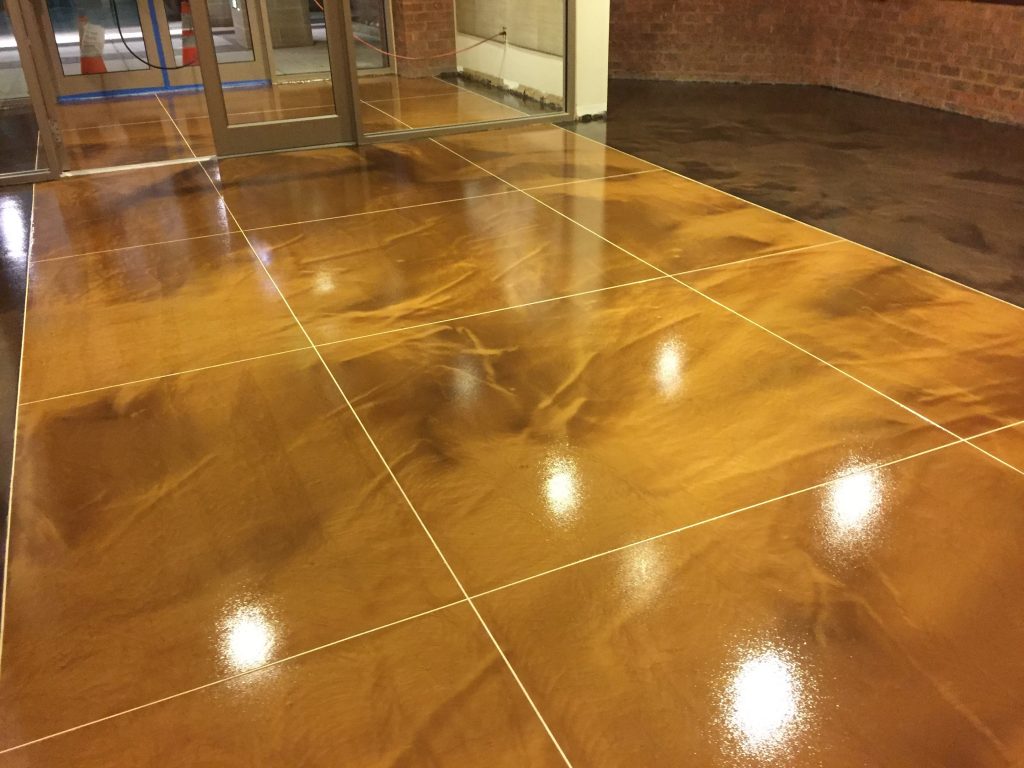
Epoxy floors, coatings and concrete floor paint offer unlimited uses with both functional and design benefits. Choosing the right system for your needs is the key to long term performance.
What Epoxy Coating Services are Right for You?
Epoxy systems range from thin concrete floor paints added by the do-it-yourselfer on basement and garage floors to high performance coatings applied to metal and steel on aircraft carriers and ships.
Common Uses for Epoxy Flooring
Because of its flexibility and variety of colors, styles and designs, the potential uses for epoxy floors are truly limited only by your imagination. Below are a few ways in which property owners use it as their primary floor option.
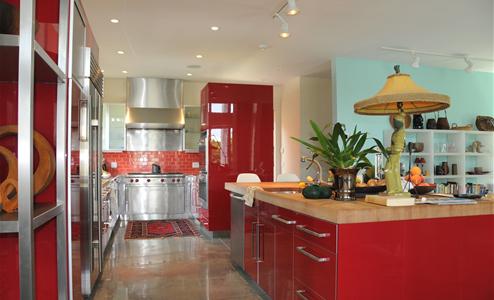 Homes and Other Residential Properties – Because of its tough and durable profile, epoxy floors are completely perfect for single family residences, vacation homes, apartments and town houses. They withstand heavy traffic without staining, and even better, can stand up to spills from kids and accidents from pets. Even more, property owners enjoy concrete floors coated with epoxy because they are easy to clean with just a wipe, damp mop and mild soap.
Homes and Other Residential Properties – Because of its tough and durable profile, epoxy floors are completely perfect for single family residences, vacation homes, apartments and town houses. They withstand heavy traffic without staining, and even better, can stand up to spills from kids and accidents from pets. Even more, property owners enjoy concrete floors coated with epoxy because they are easy to clean with just a wipe, damp mop and mild soap.
Biological Epoxy Floor Systems – Data centers, equipment cleaning areas, labs and clean rooms all have different requirements. Non porous, seamless, non-slip and easy maintenance are popular considerations, and specialized systems are available.
Commercial Kitchens – Food and beverage facilities have unique requirements for flooring. Kitchen floors must endure heat from ovens and cold from refrigeration. Additionally, they must withstand hot grease and oils, citrus, sugar and alcohol.
Warehouse Floors – Warehouses and storage areas need effective systems to withstand forklift traffic and moving carts while also improving brightness with a light reflecting coating. Chip, colored quartz or sand systems increase thickness and durability.
Kennel Flooring – Scratched coatings harbor dirt and bacteria, which can lead to kennel cough in pets. Kennel floors need a hard top coat with minimal scratching. A regular wax coat system protects the pet surfaces and fills in the scratches.
Ramps and Loading Docks – Epoxies for ramps and loading docks are a must since these locations require non-slip and non-skid qualities. Thick, coarse coatings with safety lines are available. Colors choices are generally gray, red and beige with a durable urethane top coat.
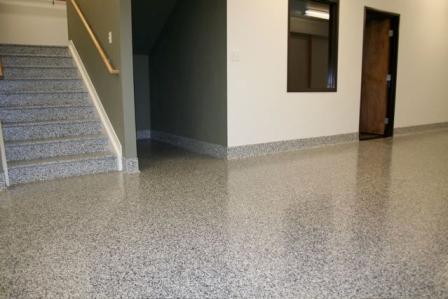 Anti-Static Floor Coatings – Anti-static coatings include sealers and high build, thick systems that are ideal for labs, chemical plants and manufacturers where these facilities use flammable solvents, subject to sparks.
Anti-Static Floor Coatings – Anti-static coatings include sealers and high build, thick systems that are ideal for labs, chemical plants and manufacturers where these facilities use flammable solvents, subject to sparks.
Concrete can be conductive due to moisture within it. Specific users must consider static control and proper systems when planning for new floor installation.
Novolac Flooring – Novolac is a secondary containment system for floors in facilities with chemicals and hazardous materials. In the event, the primary containment system fails, Novolac epoxy coatings will protect for 72 hours or more.
Types of Resin Coatings and Paints
Epoxy Garage Floor Paint Systems: DIY garage floor resins are thin, roll on paints. Kits from home improvement stores offer one to two coat systems. These resin products do not provide high performance sealers that will withstand hot tires. If you do apply a DIY system in your garage, consider purchasing interlocking garage floor tiles. These flooring tiles work best anywhere your tires touch the coating.
Hiring a professional epoxy floor contractor offers additional benefits you won’t find with do-it-yourself products. Concrete epoxy experts utilize multi-color decorative chip systems. They broadcast the chips into wet epoxy and then sweep off the excess and remove high spots. After, they apply a high performance, nonslip seal coat that resists hot tire wear. If your floor is exposed to direct sunlight, consider a urethane top coat which offers UV stability and discoloration prevention.
 One Day Floor Systems: Polyaspartics, part of the polyurea family, provide the same look and performance of epoxies, although they are not technically an epoxy.
One Day Floor Systems: Polyaspartics, part of the polyurea family, provide the same look and performance of epoxies, although they are not technically an epoxy.
Originally developed to protect and form strong adhesion to steel, polyureas also adhere to concrete with amazing success.
In addition, polyaspartics cure extremely quickly so that they may be completed in one day, Contractors apply coating on day one and then the floor is ready to use the next day. They are also UV stable and hot tire resistant making them an ideal system for garage floors. An epoxy floor system, on the other hand, takes a few days to apply while waiting for coats to cure.
The 1-Day Floor Polyaspartic System starts with floor grinding or shot blasting followed by crack repair, then 2-3 coats of polyaspartics and a decorative chip system.
Polyaspartic coatings work for both residential and commercial floors. However, application requires a skilled polyaspartic installer not an inexperienced epoxy floor painter. This extra expertise requirement is due to the chemical makeup of polyaspartics. The coatings will get extremely hot in the mixing bucket, and after the resin and hardener are mixed, application must be swift.
Due to the fast setting nature of polyaspartics, experienced professionals are required to install polyaspartic coatings.
Residential & Industrial Epoxy Floor Coating Services We Provide
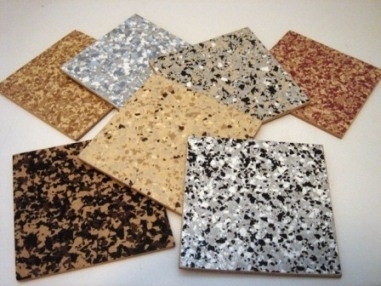 Color Flake and Quartz Epoxy Systems – Color vinyl chips come in a variety of color combinations, and prime coat applications allows for additional color options.
Color Flake and Quartz Epoxy Systems – Color vinyl chips come in a variety of color combinations, and prime coat applications allows for additional color options.
Colored quartz is a more expensive alternative to color chips. Both add thickness with enhanced durability over just a simple 2-3 coat system.
Another option is mixing sand into the wet prime coats with a top coat of epoxies, urethanes or polyaspartics.
Property owners often choose epoxy coatings for interior spaces.
Pricing range varies subject to the size, type of system, condition of floor and region. Chip systems on garage floors typically cost $4.50 - $7.00 per square foot. Quartz epoxy floor is a few dollars per square foot more than colored chip coatings.
Metallic Epoxy Flooring – Decorative metallic epoxies offer the look of marble or stained concrete. Design options include various colors mixed in random patterns to create a one-of-a-kind design. It is used in basements, garages, game rooms, retail stores, restaurants, showrooms and offices.
They primarily evolved out of the demand for stained concrete floors. Epoxy contractors and manufacturers together developed these amazing decorative floors that are non-slip, seamless and easy to clean.
Moisture Vapor Systems – When moisture is an issue from new concrete or damp areas due to hydrostatic pressure, application of a 100% solids penetrating epoxy provides the solution. It will take deep root in the pores of the concrete floor capping moisture vapor.
Installers use a layer of primer followed with application of a self-leveling concrete overlay that may be sealed with an epoxy, urethane, water based or solvent based sealer.
This system is ideal as an underlayment for carpet, hardwood or tile. Other options for self-leveling concrete including staining, sealing or coating with a chip, quartz or metallic epoxy flooring system. The base moisture vapor system ranges from $3.00 -$7.00 per square foot depending on size and floor condition.
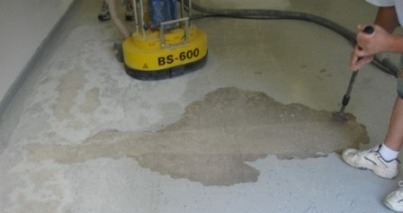 Grind and Seal Concrete – Grind and Seal concrete flooring combines floor grinding, concrete staining and a protective seal coat with a clear epoxy, urethane or polyaspartic.
Grind and Seal Concrete – Grind and Seal concrete flooring combines floor grinding, concrete staining and a protective seal coat with a clear epoxy, urethane or polyaspartic.
This has become very popular due to attractive price, quickness of application and durability. Builders use it in loft apartment buildings, restaurants and pubs, retail stores and offices.
Cost varies from $3.00 - $10.00 per square foot depending on the décor requirement, condition of the floor, size, obstacles such as doorways, transition to other rooms, floor vents, steps and stairs.
Crack Repair – We achieve best results fixing cracks with filler to fill the depth of the crack and adhere to its walls. Using a grinder smooths the crack filler and roughs it up enough to enhance bonding with garage floor paints, epoxies and related coatings such as urethanes, polyurea and polyaspartics.
Epoxy Repair – Resurfacing of resin floor coatings helps to restore flooring to like new condition. If moisture vapor causes chipping or delamination, our concrete experts remove resins with a floor grinder. Excessive wear of the top coat causes difficulties with cleaning the coat. When that occurs, light sanding and recoating is necessary.
Cove Bases – The molding installation where floors meets walls around the perimeter of a room are called cove bases. Epoxy installers apply seamless coatings to the top of molding, typically 4-8 inches high to prevent water, dirt and bacteria from gathering in the seams along floors and walls. The cove base process allows for easy to clean flooring without concern for dirt gathering around edges.
Whatever type, style or color of epoxy flooring you need, we provide concrete experts to help guide you through the process so you can choose the right system for your residential, industrial or commercial needs. Call us for a free estimate.
